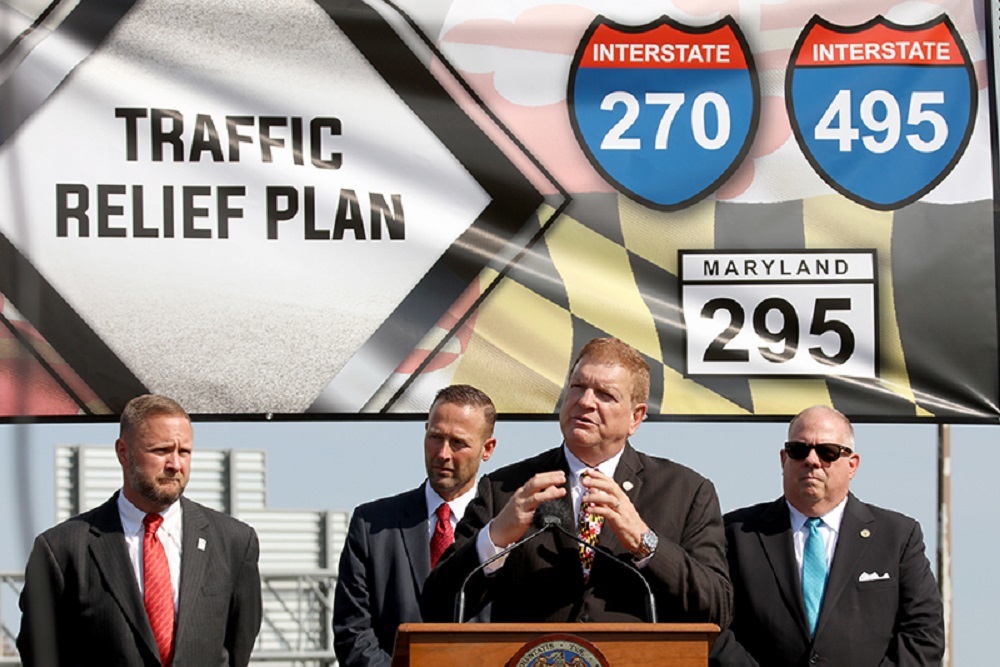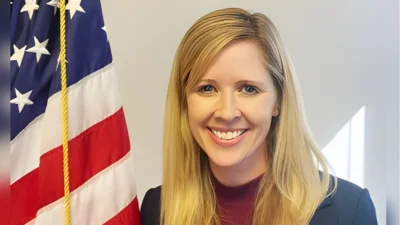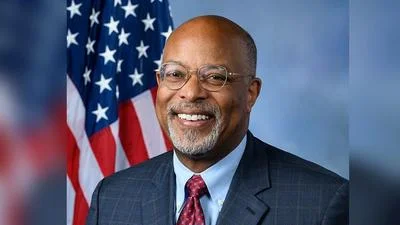Maryland Gov. Larry Hogan, far right, has announced a "a significant step forward" on his $9 billion traffic relief plan. | Contributed photo
Maryland Gov. Larry Hogan, far right, has announced a "a significant step forward" on his $9 billion traffic relief plan. | Contributed photo
Two public interest groups are calling it a "boondoggle" but Gov. Larry Hogan's $9 billion traffic relief plan for the congested Baltimore-Washington Parkway is moving ahead, according to the governor's office and published news stories.
Early last week, Hogan announced "a significant step forward" in the traffic relief plan with a "general agreement" with the U.S. Department of the Interior to consider a transfer of part of the part of the parkway from federal to state control. The same day, the Maryland Department of Transportation State Highway Administration alerted motorists to expect nighttime lane closures as resurfacing of the parkway between Maryland 100 and Maryland 175 got under way in Anne Arundel County.
"Today's progress is critical to the success of our Traffic Relief Plan for the state," Hogan was quoted in his announcement. "We look forward to working with Secretary [Ryan] Zinke and the Department of the Interior to conduct the necessary studies and surveys that we hope will ultimately allow for Maryland to take ownership of a portion of I-295 in order to move forward with our plan to relieve traffic congestion for our region."
Both announcements about the Baltimore-Washington Parkway came about nine months after Hogan issued a news release about the widening of I-270, the Capital Beltway and the Baltimore-Washington Parkway, the Maryland 295.
The day following the separate announcements, Washington Business Journal reported that widening the federally owned Baltimore-Washington Parkway won't happen if the state doesn't control the thoroughfare and that Hogan's action, as well as that of the Trump administration, was a step toward making that happen.
That same day, the U.S. Public Interest Research Group Education Fund and the Frontier Group named Hogan's traffic relief plan a "misguided highway project" in a jointly issued 48-page "Highway Boondoggles 4." The report admitted that the three highways covered in the planned expansion plan -- Interstate 495 around Washington; the Interstate 270 connectors between the nation's capital and Fredrick; and the Maryland 295 connection between D.C. and Baltimore -- all suffer congestion issues and are "a source of pain for area commuters."
However, the report claimed that the expansion plan "would likely bring minimal relief for those commuters" along those high-traffic corridors and would be a financial burden for Maryland residents. "The project also would cost Marylanders money – for new tolls, but also likely from state funds," the report said.
"The plan envisions that I-495 and I-270 would be built through a public-private partnership, under which a private company or companies would build the highways and then collect tolls for access to new express lanes, in a contract lasting a to-be-determined number of years. The MD-295 lane additions would be toll roads built by the Maryland Transportation Authority."
Despite the "boondoggle" label, Hogan spokeswoman Amelia Chasse reportedly told the Washington Post that the governor's expansion plan reflects "a balanced approach" to the corridor's transportation needs with "robust" transit and highway spending.
"Gov. Hogan has spent more on transit projects than any other Maryland governor, including moving forward with construction of the $5 billion Purple Line light rail in Montgomery and Prince George's counties, and signing legislation to provide historic funding to fix the Washington, D.C. Metro system," Chasse reportedly told the Washington Post in an email. The news outlet also reported that Chasse said the expansion plan addresses studies that the D.C. metropolitan area and that part of Maryland "have some of the worst congestion and commutes" in the nation, which leads to costs in wasted time, wasted fuel and emissions.
"Simply put, improvements to relieve congestion on our highways are essential, along with expanded transit options like the Purple Line and Metro improvements," Chasse was quoted as saying.






 Alerts Sign-up
Alerts Sign-up